Help! My Merchant Account Has Been Terminated!
February 29, 2024
Can Identity Theft Put Me on the MATCH List?
May 31, 2024What Does Mastercard’s Violation of Standards Mean?
Have you just found out that you are on the MATCH List due to a violation of standards? There are fourteen complicated reasons as to why you may be on the MATCH List, and violating Mastercard’s standards is one of them. We are here to help you understand these standards, how you may have violated them, and how you can get off the MATCH List without having to wait the five-year period. Keep reading to learn more about the MATCH List, Mastercard’s standards, and how to get off the MATCH List.
Understanding the MATCH List
Mastercard created the MATCH List as an industry blacklist. It warns potential banks and acquirers of high-risk merchants and what offenses they have committed to become a high-risk merchants.
The overview of the MATCH List platform includes:
The Mastercard Alert to Control High-risk Merchants (MATCH) allows an acquiring partner to look at whether another acquiring partner has terminated a merchant in the past and the reason for that termination to aid in an onboarding decision. This will provide acquirers with the opportunity to develop and review enhanced or incremental risk information before entering into a merchant agreement. The API also provides the facility for an acquiring partner to add a merchant termination event to the system. Further, the API allows an acquiring partner to identify when other acquiring partners have inquired about a given merchant.
Here’s how it works:
MATCH uses customer-reported information regarding merchants and their owners to offer acquirers the following fraud detection features and options for assessing risk:
- Acquirers may add and search for information regarding up to five principal and associate business owners per merchant.
- Acquirers may designate regions and countries for database searches.
- MATCH uses multiple fields to determine possible matches.
- MATCH supports retroactive alert processing of data residing on the database for up to 360 days.
Reason Code 10: Mastercard Violation of Standards
Reason code 10 for being placed on the MATCH List is by Violation of Standards. Here is the official definition of the reason code by Mastercard:
With respect to a Merchant reported by a Mastercard Acquirer, the Merchant was in violation of one or more Standards that describe procedures to be employed by the Merchant in Transactions in which Cards are used, including, by way of example and not Cardholders, minimum/maximum Transaction amount restrictions, and Prohibited Transactions set forth in Chapter 5 of the Mastercard Rules manual.
With respect to a merchant reported by an American Express acquirer (ICA numbers 102 through 125), the merchant was in violation of one or more American Express bylaws, rules, operating regulations, and policies that set forth procedures to be employed by the merchant in transactions in which American Express cards are used.
Violating Mastercard’s standards can result in your placement on the MATCH List, which has a five-year waiting period before your name, your business’s name and all of your associates can be aged off of the list. Luckily, there are early removal options and more you can do to get back to business as usual.
What Are Mastercard’s Standards? What Did I Violate?
The unfortunate fact about the Mastercard MATCH List is that you get absolutely no notification that you have been placed on it, why you have been placed on it, or even a chance to rectify the situation.
If you do somehow find out that you have been placed on the MATCH List, you can call your bank to find out what has happened. They may tell you that you are on the list for reason code 10: Violation of Standards.
But, what are Mastercard’s standards, and which one was violated?
Mastercard has an extensive manual, which you can read by clicking here. In this manual, Mastercard says the following about their standards:
- Mastercard is dedicated to making payments safe, simple and smart. We have a set of
standards (“the Standards”) in support of this mission that provides our Customers with clear
direction as to their responsibilities. The Standards include the information contained in this
Mastercard Rules manual and other manuals, along with guides, announcements and policies
that may be updated from time to time. - The Standards enable growth for Mastercard and for our Customers while ensuring integrity
and reliability. They are developed under a set of principles that guide us in our actions and
provide a framework under which we operate.
Mastercard and its Customers: - Uphold the value of the Mastercard brands as the choice of payment for consumers, businesses
and merchants. Consumers, businesses and merchants have multiple payment options to use
and to accept. Mastercard and its Customers operate so as to uphold the value of the
Mastercard brands so that our products will be adopted and chosen by these end users. - Act with financial integrity and in compliance with the Standards and the law. Operating
programs in a manner that is financially sound, in compliance with the Standards and the law
helps us manage risk to Mastercard and to our Customers. - Engage in rigorous fraud management practices. Ensuring that transactions are conducted
securely is of the utmost importance. Mastercard and its Customers leverage best-in-class
technology and business practices in order to make transactions safe. - Manage systems and programs to support interoperability. The ability to process transactions at
a global and local level is a key feature of the Mastercard network. Customers manage their
systems and programs to enable the seamless acceptance and processing of Mastercard
transactions.
I’m On The MATCH List. What Do I Do Now?
As mentioned, the MATCH List ensures that you are blacklisted for up to five years. At this time, you will find it very difficult to open a new merchant account and keep conducting business as usual. Many businesses do not survive this waiting period. Luckily, you have options. You can become a high-risk merchant until your five-year waiting period is up, or you can seek early removal from the MATCH List.
High-Risk Merchant Information
According to NerdWallet, a high-risk merchant account is required if a business with a greater risk of fraud or chargebacks — or with certain other characteristics — wants to accept credit card payments. When a customer pays by card, the funds are first held in a merchant account before being transferred to the business’s bank account. Payment processors often offer built-in merchant accounts; however, many payment processing companies won’t work with businesses they consider “high-risk.”
Businesses may be deemed high-risk based on their industry, such as tobacco or firearm sales, or because they sell internationally, offer subscription pricing, or have little cash in the bank. That’s where high-risk merchant accounts come in.
If you choose a high-risk merchant account, you will pay much higher fees and be stuck in a lengthy contract.
Early MATCH List Removal with TFM Law
Rather than waiting the five-year period or branding yourself as a high-risk merchant, you can seek early removal from the MATCH List and put this all behind you.
The Law Offices of Theodore Monroe focuses on litigation and counseling in the areas of payments, credit card processing, e-commerce, direct response marketing, and Federal Trade Commission enforcement. Last year, the firm removed 100% of the people who came to us from the MATCH list.
Theodore F. Monroe, Founder of TFM Law, has successfully:
- Represented merchants recovering funds from processors
- Structured processing relationships to comply with Card Brand requirements
- Drafted and negotiated contracts involving payment facilitators and ISOs
- Represented continuity merchants in compliance and litigation issues
- Fought for numerous companies in suits brought by the Federal Trade Commission and obtained excellent results for firms in the digital products, loan modification, government grant, and nutraceuticals industries
Before opening his firm, Mr. Monroe practiced law with Crosby, Heafey, Roach & May (now Reed Smith LLP) and Lewis, D’Amato, Brisbois & Bisgaard (now Lewis, Brisbois, Bisgaard & Smith), where he defended numerous accounting and law firms in professional liability actions, and insurance carriers in bad faith actions.
Before becoming a lawyer, Mr. Monroe worked as a forensic accountant at Coopers & Lybrand, which provided him with a background in forensic accounting and financial analysis that is unique among litigators in Los Angeles. Mr. Monroe studied at Duke University Law School, achieved a BS with Honors, Accounting, University of Kentucky, and is a member of the California State Bar and the Kentucky State Bar.
For more information and to get off the MATCH List as quickly as possible, visit us at howtogetoffmatch.com!




